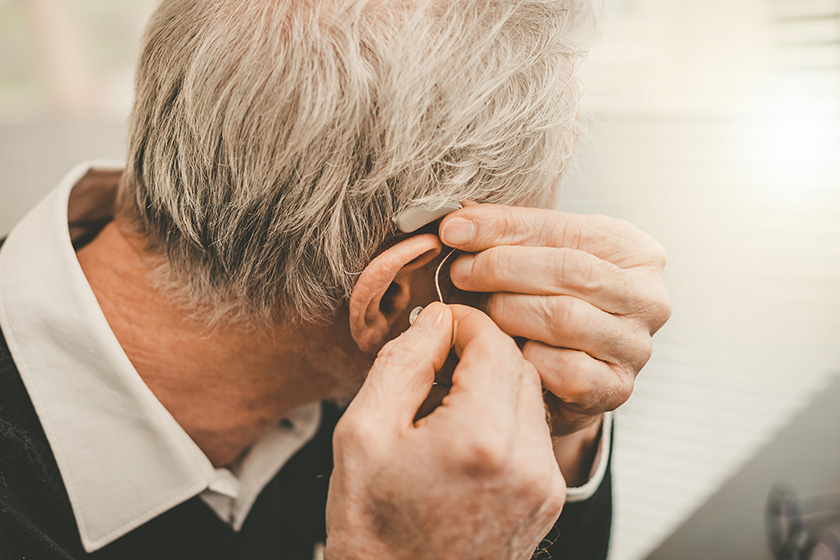Hearing loss can have a wide range of consequences. It is possible that your loved one will miss out on conversations with friends and relatives. When your loved one is on the phone, it is possible that they will not be able to hear what the caller is saying. Your loved one can miss the doctor’s comments in the doctor’s office.
Because hearing loss is not visible, it is generally detected by a change in behavior. You could notice that your loved one asks you to repeat yourself frequently, turns up the TV loudly, or complains that you always mumble. If you observe any of these or other indicators of hearing loss, you should take your loved one to see a doctor as soon as possible for a correct diagnosis and treatment. Hearing difficulties, after all, raise the risk of dementia if left untreated.
Allow us at Discovery Commons South Biscayne to tell you about what causes hearing loss, why it is crucial to treat hearing loss and the ten most frequent indications of hearing loss in mature adults to help you recognize it early.
What Is the Cause of Hearing Loss in Mature Adults?
Hearing loss can be caused by a variety of factors, including medical problems and extreme sound harm. However, as people become older, they are more prone to develop presbycusis or age-related hearing loss. It is a gradual and progressive hearing loss caused by age changes in the inner ear.
Signs that Mature Adults May Have Hearing Loss
If you suspect that you or your loved one is slowly losing the sense of hearing, here are some of the telling signs and symptoms that this may indeed be the case:
- Having difficulty hearing over the phone
- When two or more individuals speak at the same time, it is difficult to keep track of what they are saying.
- Increasing the TV volume too much
- Struggling to follow a discussion
- Having difficulty hearing in a noisy environment, such as a restaurant
- Dizziness, discomfort, or ringing in their ears are common complaints.
- Requesting that individuals repeat themselves on a regular basis
- Complains that people mumble or do not communicate clearly
- Misunderstanding what others say and failing to respond in a predictable manner
- Having difficulty comprehending what ladies or children are saying
Management of the Condition
Consult your doctor if your loved one is having problems hearing. Your doctor may recommend your loved one to an otolaryngologist, an ear, nose, and throat specialist. The otolaryngologist will collect a medical history, inquire whether any other family members suffer from hearing loss, do a comprehensive examination, and recommend any necessary testing.
Your loved one may be referred to an audiologist. An audiometer will be used by the audiologist to assess your ability to hear sounds of varying pitch and volume. These exams are completely painless. If your loved one requires a hearing aid, an audiologist can assist them in choosing the ideal hearing aid for them and teaching them how to get the most out of it.







